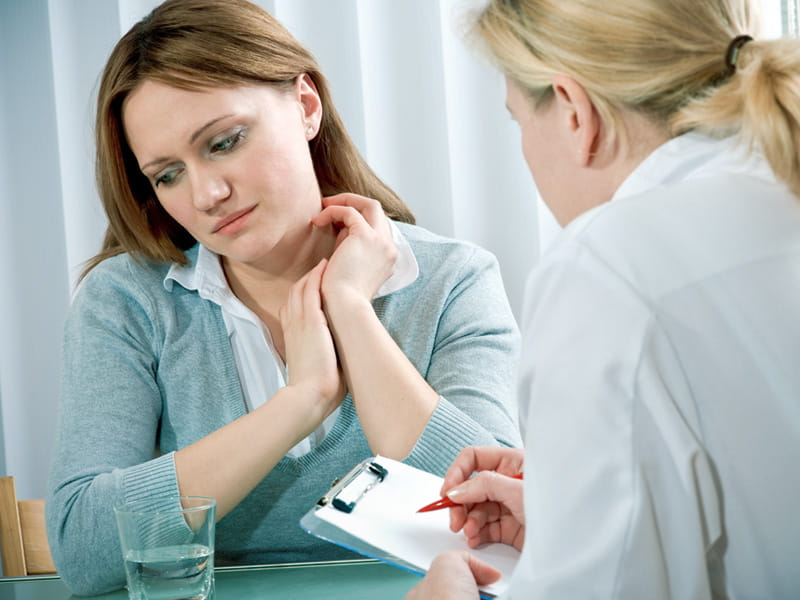
Most people know what cancer is but do not fully understand how it can affect someone’s health. The more you know about what cancer does to your body, the better equipped you will be to deal with these effects. This article will provide you with the information you need to make your battle with cancer easier.
Cancer affects not only the person with the disease, but everyone that loves them. Because most forms of cancer are curable if caught early enough, it is important that you consult with as many professionals as you can as often as you can.
Finding cancer early on is critical to fighting and beating cancer. Schedule regular appointments for screenings, so that you can catch cancer cells before you start to have symptoms. Breast and testicular cancers can be detected through self examination, so do this once a month.
Maintain a healthy weight and diet and get plenty of exercise. Not only can it help you feel great everyday, but it can lower cancer risks too. Eating a lot of vegetables and fruits, drinking plenty of water, and working out at least for 30 minutes everyday can keep cancer away and make your life better.
When you are diagnosed with cancer, quitting smoking should be high on your agenda. A lot of smokers with cancer think they shouldn’t quit smoking. Their thinking is that they are sick already. That’s wrong, though. Cigarettes are called “cancer sticks” for a reason. The chemicals in the cigarettes significantly reduce the chance that you will recover.
There may be someone in your friends or family that also suffers from the pains of cancer. If you do know someone like this, you should listen to any advice they may offer and take it to heart. Doing this can be hard sometimes, but the cancer victim you know really could use any chance they can to express their emotions. Try not to inject your own thoughts or opinions on them; allow them to just vent their own feelings without interruption.
Colon Cancer
Know various symptoms of various types of cancer to detect it early, like colon cancer. Losing weight unexpectedly, bloody stools, thinning stools and cramping all are symptoms of colon cancer. If you start to see these symptoms, schedule an appointment with your doctor immediately.
When dealing with cancer, whether it is you or a loved one that is suffering, it is important to be as knowledgeable as possible by reading up on it. Being confident plays a major role in fighting cancer.
Depression has significant effects on your immune system and decreases your ability to fight disease. It’s possible that they’ll give up without even fighting back.
Limit your intake of sugary drinks such as soda, or eliminate them altogether if you can. These drinks increase your cancer risk. Excess pounds are caused by high levels of calories, as well as simple carbs, and this unnecessary weight is breeding ground for potential tumors.
Be open about how you are feeling, both physically and emotionally, and keep the lines of communication open. If you are not getting the help you need, speak with your friends and family in a thoughtful way to explain your needs. Have a cordial conversation with them to let them know what they can do to help you and why you need help. Don’t be abusive, though! Having cancer is tough. Go forward always using love as the foundation for support. Be decisive!
Don’t take cancer lying down. You’ll maximize your chances for victory over the cancer if you go into it with a fighting attitude.
The more active you are in your own treatment, the better advocate for your care you will be. Don’t exclude yourself from the conversation. This is not the smartest way to help yourself get well.
Do not believe anyone who tells you alcohol will help you. It’s actually the grapes in wine which give the benefit to preventing cancer from developing. If you drink alcohol, you can be at risk for cancer.
Stay away from doctors who you are having trouble communicating with. Find someone who will answer all your questions quickly and efficiently. You should be able to have any and every concern addressed immediately.
If your cancer medication and treatment is upsetting your stomach, eliminate coffee from your diet. The caffeine can increase nausea, therefore it is advisable to refrain from it completely. Other caffeinated substances should be avoided as well, including soft drinks.
When a family member has cancer, try not to be overly solicitous. Treat them as you normally do. Cancer patients may be depressed, anxious or angry; they need help staying positive to give them the best chance of recovery. If you treat your loved one like he’s an invalid or near death, he may feel worse about himself and his situation, instead of better.
As mentioned above, having the right information can give you an understanding of the health challenges of cancer. If you know how to minimize your risks by bettering your health, you can protect yourself better from cancer. Use what you have learned in this article and you may be able to get the upper hand on cancer.